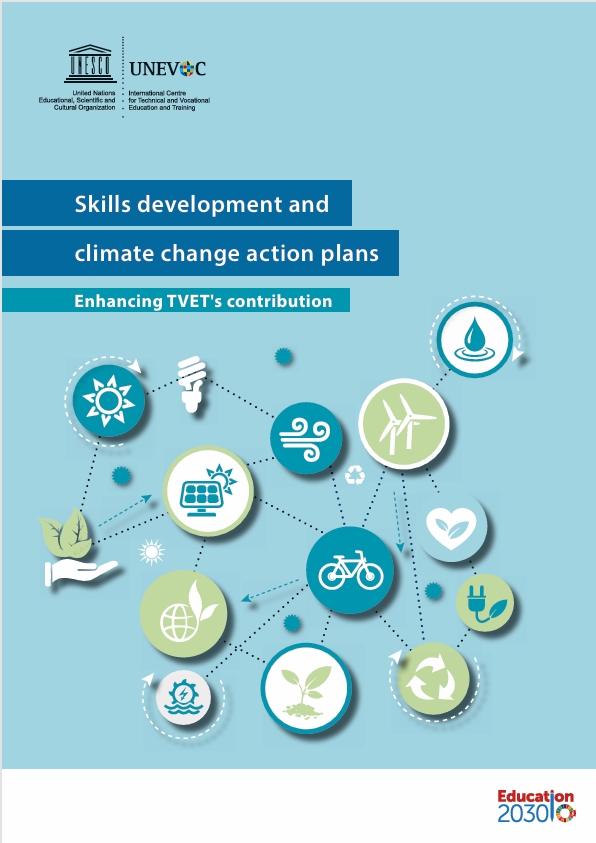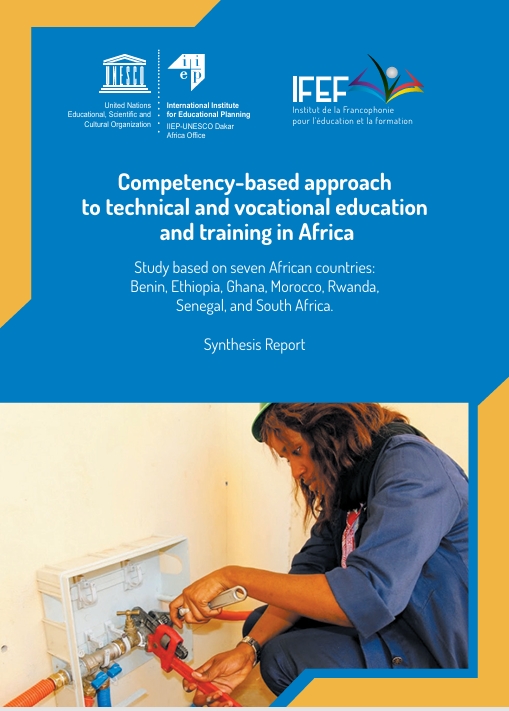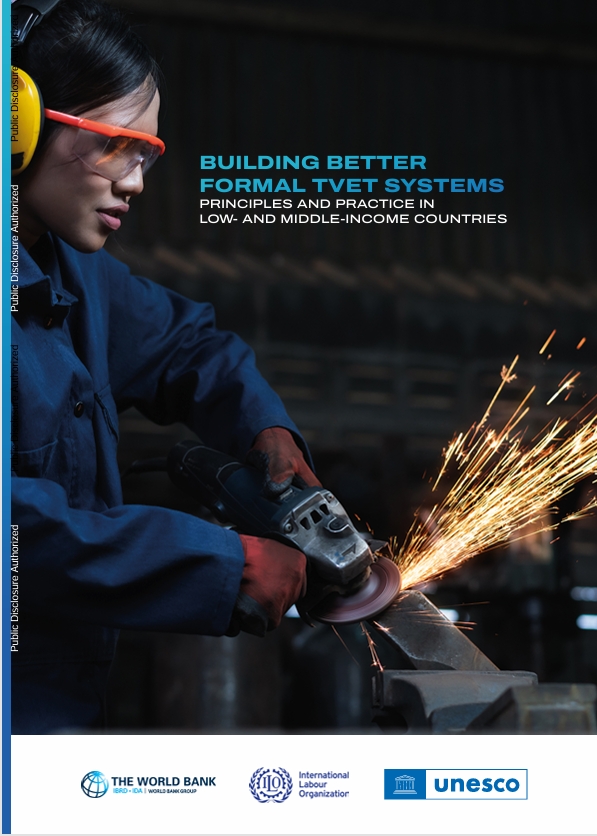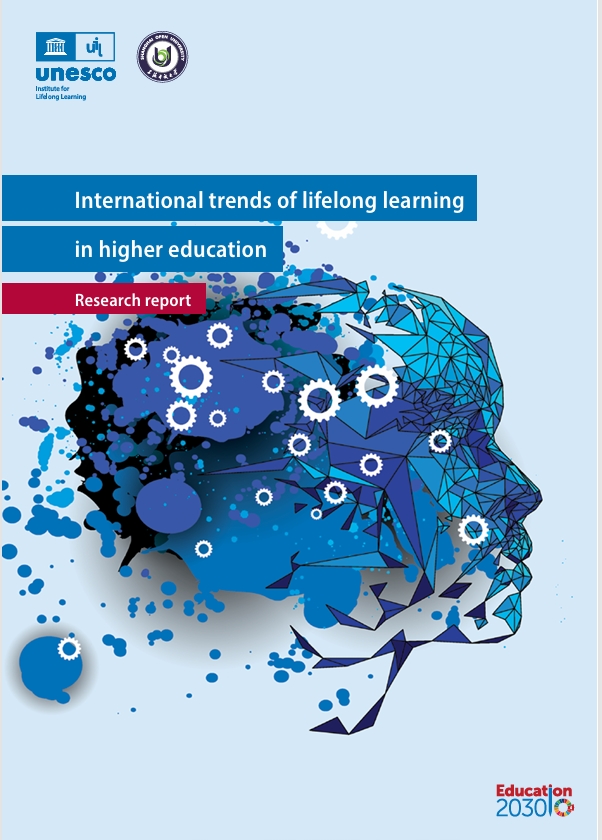This discussion paper is the result of a qualitative review of climate plans conducted between 2018 and 2019 in fifty-seven selected countries to assess the ongoing and potential contribution of technical and vocational education and training (TVET) to the realization of these plans. The climate plans are formally known as Nationally Determined Contributions (NDCs) and National Communications (NCs). NCs are submitted to the UNFCCC Secretariat every four years and report on countries' previous actions and progress in addressing climate change. NDCs are submitted every five years as part of the 2015 Paris Agreement and set out countries' future plans and commitments on emission reduction and implementation (UNESCO, 2019).
This paper compiles relevant information about country submissions (NDCs and NCs, including national adaptation plans and policies created) and complements the national-level assessments of green skill gaps and needs with insights gained through desk research and interviews. The aim is to distill relevant information that is useful for decision-makers and vocational training providers about issues of skills supply and demand in climate change priority sectors.
Desk-based research on the countries was based on publicly available documents and statistics, and on documents and submissions that have been made available by the relevant governments. Qualitative data for this report were collected during interviews with TVET officials. Any updates made on the documents after 2018 are not included in the analysis provided in this report.
As of 2018, 165 Intended Nationally Determined Contributions (INDCs) had been submitted, covering 192 Parties to the Convention, including one regional economic integration organization (European Union). By 2020, 186 NDCs were recorded in the UNFCCC database. The sample used in the study represents 34 percent of the total INDCs submitted.
All parties have included an adaptation component in their INDCs. The study sample includes adaptation components from ten African countries, thirteen Asia-Pacific States, nine European and four CIS countries, seven Latin American countries, two North American countries, five Arab State countries, and seven Pacific and Caribbean islands.
In a separate study, it was suggested that 95 percent of the 194 reporting countries have included some climate change education content in one or more documents submitted to the UNFCCC Secretariat (UNESCO, 2019). Climate change education is underpinned by the concept of engaging society to become part of the solution in reducing the impact of climate change. This requires increasing knowledge and learning regarding the causes of climate change and its impact on people's day-to-day lives, and becoming aware of society's role in this respect, including engaging in public dialogues and meaningful action (Article 6, UNFCCC). Thus, the inclusion of climate change education indicates that a majority of countries consider aspects of climate change education as integral to the implementation of their national action on climate change. Within the framework of climate change education, specific practical actions can be identified that embrace both formal and informal education and training, cutting across different types of learning and taking in settings from preschool classes and the seminar rooms of universities to vocational training and lifelong learning.
The analysis made through this paper has generated a set of approaches for climate change adaptation through the education and training lens. These approaches can be used to advance the discussion in strengthening the technical and vocational skills development component in country climate adaptation plans. Transmitting the knowledge and skills needed to accelerate actions for the benefit of the climate is an important element that cannot be missed in any well-crafted national plan. This paper also presents an understanding of the present gaps between well-crafted plans and possible skill-based sustainable solutions that can be offered by a great variety of training provisions available.
In a nutshell, very few countries have paid specific attention to the technical and vocational skills development required for the climate change transition set out in their national adaptation plans. A further few countries have laid out strategies specific to skills development, technological advancements, and creating a vocationally-focused workforce, recognizing the emerging demand for the skills required by a green economy. These countries appear to be actively tapping into TVET and skills development by employing a suite of approaches that may or may not produce concrete outcomes supported by TVET, namely:
Entering into partnerships to ensure and strengthen coherence between a country's policies and ground-level actions;
Synchronizing investments in jobs and skills;
Developing TVET policies to ensure green growth;
Establishing cooperation with the private sector to incorporate industry skill needs;
Undertaking skills needs assessments to identify nation-and sector-wide requirements.
Despite overall progress on skills development, all the documents analyzed reveal that countries could still continue to face skill gaps and shortages with respect to the implementation of the adaptation and mitigation components of their NDCs.






